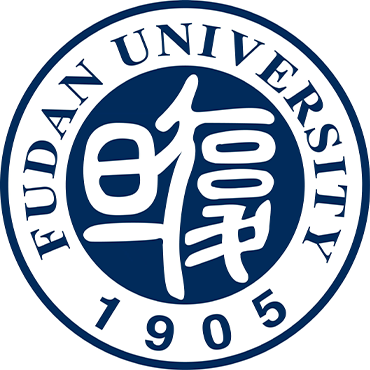Sponsors & Partners

Bank of Beijing
Established in 1996, Bank of Beijing grasps the opportunities of this era and has achieved several development milestones, including introducing overseas strategic investors, public listing, and geographic expansion. The Bank has nearly 640 branches in not only over 10 major domestic cities, including Beijing,Shanghai but also in Hong Kong Special Administrative Region and the Netherlands. The success of Bank of Beijing has established a classic pattern for innovation development of small- and medium-sized banks. In this new era, Bank of Beijing focuses closely on the three tasks of “serving real economy, preventing financial risks and deepening financial reform”, strengthens the guidance of the Party building, sticks to compliant operation in accordance with the law, speeds up digital transformation, enhances comprehensive risk management and control, and steadily promotes high-quality development of all the businesses. The Bank holds a brand value of 76.9 billion Yuan and ranks No.50 in terms of Tier-1 capital on the latest World Top1000 Banks list, representing one of the World Top 100 for nine years in a row.

China Construction Bank
China Construction Bank Corporation, headquartered in Beijing, is a leading large-scale commercial bank in China. Its predecessor, China Construction Bank, was established in October 1954. It was listed on Hong Kong Stock Exchange in October 2005 (stock code: 939) and the Shanghai Stock Exchange in September 2007 (stock code: 601939). At the end of 2021, the Bank’s market capitalisation reached US$175,302 million, ranking sixth among all listed banks in the world. The Group ranks second among global banks by Tier 1 capital.
The Bank provides customers with comprehensive financial services, including personal banking, corporate banking,investment and wealth management. With 14,510 banking outlets and 351,252 staff members, the Bank serves hundreds of millions of personal and corporate customers. The Bank has subsidiaries in various sectors, including fund management, financial leasing, trust, insurance, futures, pension and investment banking, and has nearly 200 overseas entities covering 31 countries and regions.
The Bank proactively practices “New Finance”, and fully promotes the implementation of the “Three Major Strategies” of house rental, inclusive finance and FinTech. By adhering to the digitalised operation strategy of “building ecologies,setting up scenarios and expanding user base”, the Bank strives to achieve a breakthrough at the Customer Community with its root deeply planted among the general public so as to serve as a “warm and cosy” bank for the ordinary people. Moreover, the Bank focuses on empowering the Business Community, so as to create an ecology featuring co-existence and co-prosperity and become a lifetime partner of its corporate customers. Furthermore, the Bank promotes its connection with the Government Community, striving to support social governance so as to become a national trusted financial pillar.
Adhering to the “market-oriented, customer-centric” business concept, the Bank is committed to developing itself into a world class banking group with top value creation capability. The Bank strives to achieve the integration of short-term and long-term benefits, and the synthesis of business goals and social responsibilities objectives, so as to maximise the value for its stakeholders including customers, shareholders, associates and society.
Academic Partner

Center for China and Globalization (CCG)
The Center for China and Globalization (CCG) is a non-governmental think tank based in Beijing, founded by Dr. Henry Huiyao WANG and Dr. Mable Lu MIAO in 2008. CCG has been granted the official special consultative status by the Economic and Social Council of the United Nations (ECOSOC) as a non-governmental organization. In the 2020 Global Go To Think Tank Index by the University of Pennsylvania Think Tank and Civil Society Program (TTCSP), CCG ranked 64th of the top think tanks worldwide and among the top 50 “best independent think tanks.”
CCG now has more than ten branches and overseas representatives and over 100 full-time researchers and staff engaged in research on globalization, global governance, international economy and trade, international relations and global migration. CCG is also one of the rare national Postdoctoral Programme Research Centers, certified China’s Ministry of Human Resources and Social Security, outside China’s state apparatus.
CCG has also built an international research network of leading experts in China and overseas. CCG engages in ongoing research on China and globalization from an international perspective and publishes more than 10 books every year in English and Chinese, as well as a series of research reports. It shares its research findings with the public and has published hundreds of thousands of related books and reports.
CCG has contributed to government policy-making on national and global issues. Its proposals and recommendations are regularly heard by relevant state authorities, many of which have been acted on by the China’s central leadership and have served as reference for major decisions made by relevant departments.
With public interest in mind, CCG has developed a variety of events and platforms featuring the ideas and attendances of officials, scholars, and industry leaders and disseminating them both inside and outside China. Each year, CCG hosts high-profile flagship forums which are noted for their international participation, impact and constructiveness. CCG also hosts more than 100 events annually, including seminars, roundtables, luncheons, publishing events, and meetings on policy input and exchange.
CCG maintains long-term cooperation with many international organizations and international think tanks in hosting seminars and conducting research. CCG is an active, regular participant in international research and exchange activities. CCG is also a frequently guest on the international stage, having taken part in the Athens Democracy Forum, the Paris Peace Forum, the Munich Security Conference, the World Economic Forum, the Munk Debates, China Social and Economic Symposium of Harvard University and others. Among its close contacts are the Brookings, the Center for Strategic and International Studies, Council on Foreign Relations (CSIS), the Cato Institute, the Carnegie-Tsinghua Center, the Carnegie Endowment for International Peace, the Pew Research Center, the Dialogue of Civilizations Research Institute,the Korber Foundation,the German Institute for International and Security Affairs (SWP), the Italian Institute for International Political Studies (ISPI), the Heritage Foundation, the American Enterprise Institute, and the Asia Society.
In line with other influential thinktanks globally, CCG is routinely involved in Track 1.5 and Track 2 diplomacy – a testament to the recognition, respect, and regard that governments and thinktanks place on CCG.
Frequently hosting foreign officials and thinktankers in Beijing, CCG is one of the most valued ports of call outside Chinese state organs. CCG routinely hosts visitors from Beijing’s diplomatic community and is also routinely invited to events hosted by them. CCG meets them physically and virtually, both inside and outside China.

Fudan University (FISF)
Fanhai International School of Finance, Fudan University(FISF) is a business school founded in accordance with the management model and standards of the world's leading business schools, focusing on high-end financial talent education and financial think-tank research. The school was founded in late 2016 and officially opened in June 2017, with a core faculty team composed of outstanding scholars recruited from around the world.
FISF aspires to ascend to the league of world-class business schools with global and domestic influence in the next 5 to 8 years. To this end, the School is committed to educate future leaders through innovative, best-in-class pedagogy. It is also determined to spearhead cutting-edge research that will further our understanding of the Chinese and international economies and inform decision-making in the public as well as private sectors.
A great school needs great people. That is why FISF is building a core faculty of more than 80 world-renowned scholars as tenured and termed professors, all with proven track records in research and teaching. They will be joined by a team of clinical professors who hold key positions in international organizations, government agencies and successful enterprises to complement classroom learning with their wealth of real-world experience.
Sponsors

















